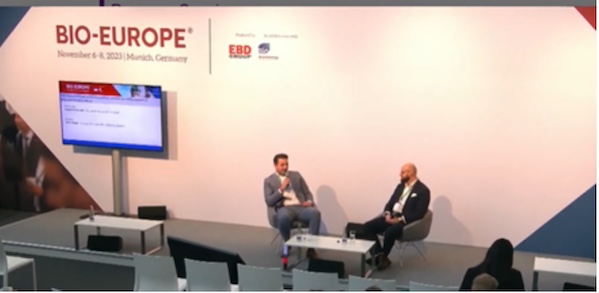EU HTA harmonisation may land off key for pharma
November 10, 2023
Source: drugdu
 420
420

Heading towards 2025, pharmaceutical companies have begun preparing for the harmonisation of health technology assessment (HTA) processes in the EU, but the looming change has led to mixed sentiments. “I hope that this will broaden and speed up access…, but realistically, as the process stands now, I am a bit sceptical that it will reach that goal quickly,” said Kevin Rieger, the director of corporate affairs at Beigene.
Rieger discussed the upcoming HTA process with Fabian Berkemeier, the managing director at the IGES Institute, at the Bio-Europe conference. In a 7 November panel, Rieger expressed concerns about the logistics of the joint-EU HTA. He highlighted that the new process would rather duplicate the data submissions needed as all requirements for member states would be added into one HTA process, alongside the European Commission’s (EC) own rules. Furthermore, he said that thus far, receiving direct advice meetings with the EC had been a difficult process.
The EC released the regulation on HTA (HTAR) in 2022, which proposed “joint clinical assessments, joint scientific consultations, the identification of emerging health technologies, and voluntary cooperation”. This legislation aimed to increase access to medicines in previously neglected member states and speed up the HTA process, he added. Berkmeier explained that the HTAR will be implemented for the assessment of advanced therapeutic medicinal products and oncology therapies in 2025. This will be followed by orphan medicines in 2028, and all other medicinal products in 2030.
The EC defines an HTA as “a scientific evidence-based process that allows competent authorities to determine the relative effectiveness of new or existing health technologies.” The assessments specifically question the added value of new technology compared to existing or other new technologies.
Rieger, explained that the HTAR will also be cumbersome due to differences in care standards across countries. He said that as trial standards and preferred drug comparators differ in member states, it would be difficult to design a trial that met all regulatory standards at once.
Beigene has formed an EU HTA taskforce to prepare its oncology pipeline for 2025, but Rieger says that it is a “huge stretch” on resources as companies must tackle these submissions, alongside separate ones for marketing authorisation and reimbursement processes. Beigene is also consulting with experts from national authorities, but he highlights the fact these efforts will be difficult for smaller companies where resources are “scarce”. Krieger urges biotechs to “start preparing now” as the 2025 implementation quickly approaches.
https://www.pharmaceutical-technology.com/news/bio-europe-2023-eu-hta-harmonisation-may-land-off-key-for-pharma/?cf-view
By editorRead more on
- The first subject has been dosed in the Phase I clinical trial of Yuandong Bio’s EP-0210 monoclonal antibody injection. February 10, 2026
- Clinical trial of recombinant herpes zoster ZFA01 adjuvant vaccine (CHO cells) approved February 10, 2026
- Heyu Pharmaceuticals’ FGFR4 inhibitor ipagoglottinib has received Fast Track designation from the FDA for the treatment of advanced HCC patients with FGF19 overexpression who have been treated with ICIs and mTKIs. February 10, 2026
- Sanofi’s “Rilzabrutinib” has been recognized as a Breakthrough Therapy in the United States and an Orphan Drug in Japan, and has applied for marketing approval in China. February 10, 2026
- Domestically developed blockbuster ADC approved for new indication February 10, 2026
your submission has already been received.
OK
Subscribe
Please enter a valid Email address!
Submit
The most relevant industry news & insight will be sent to you every two weeks.



